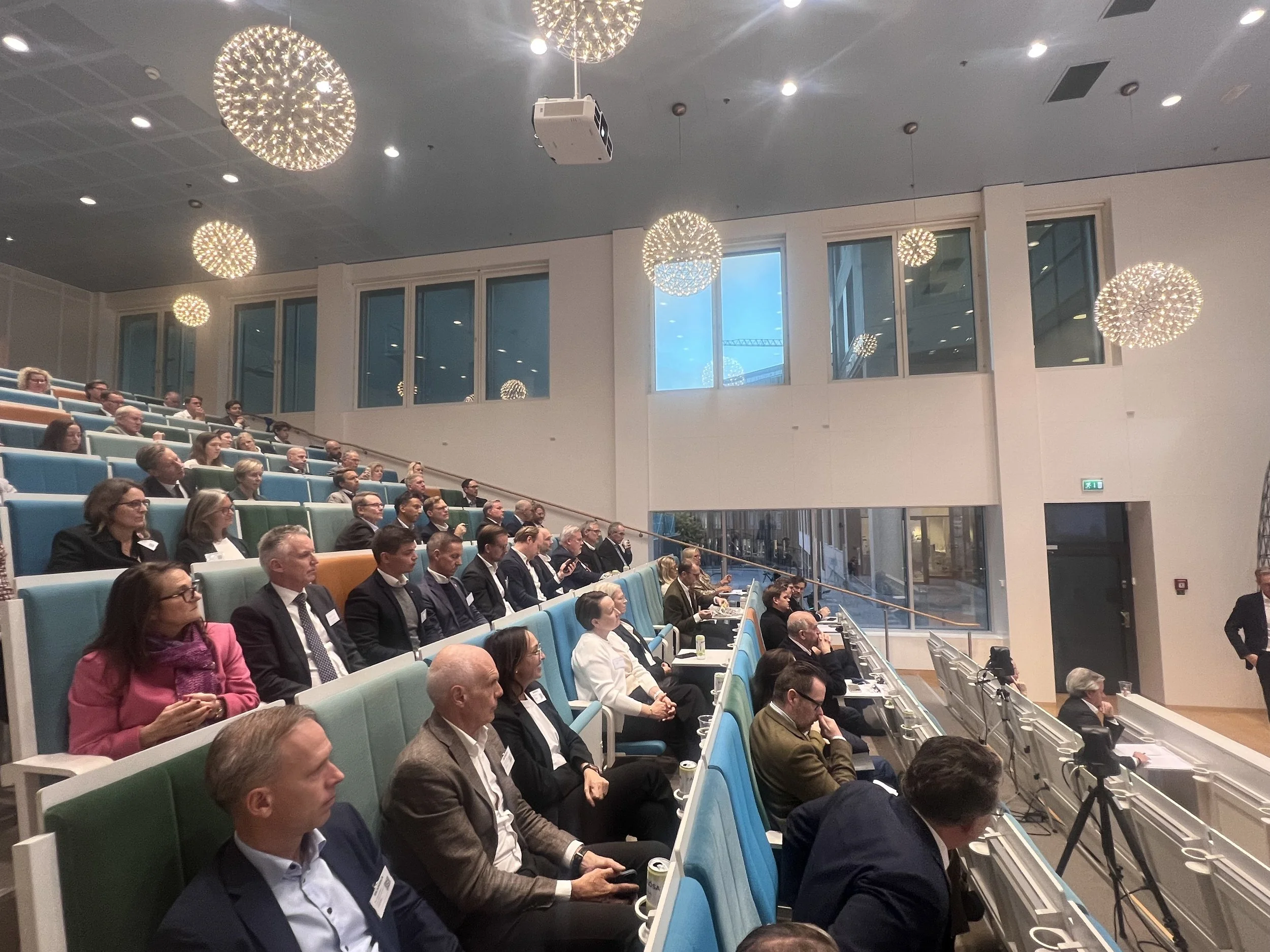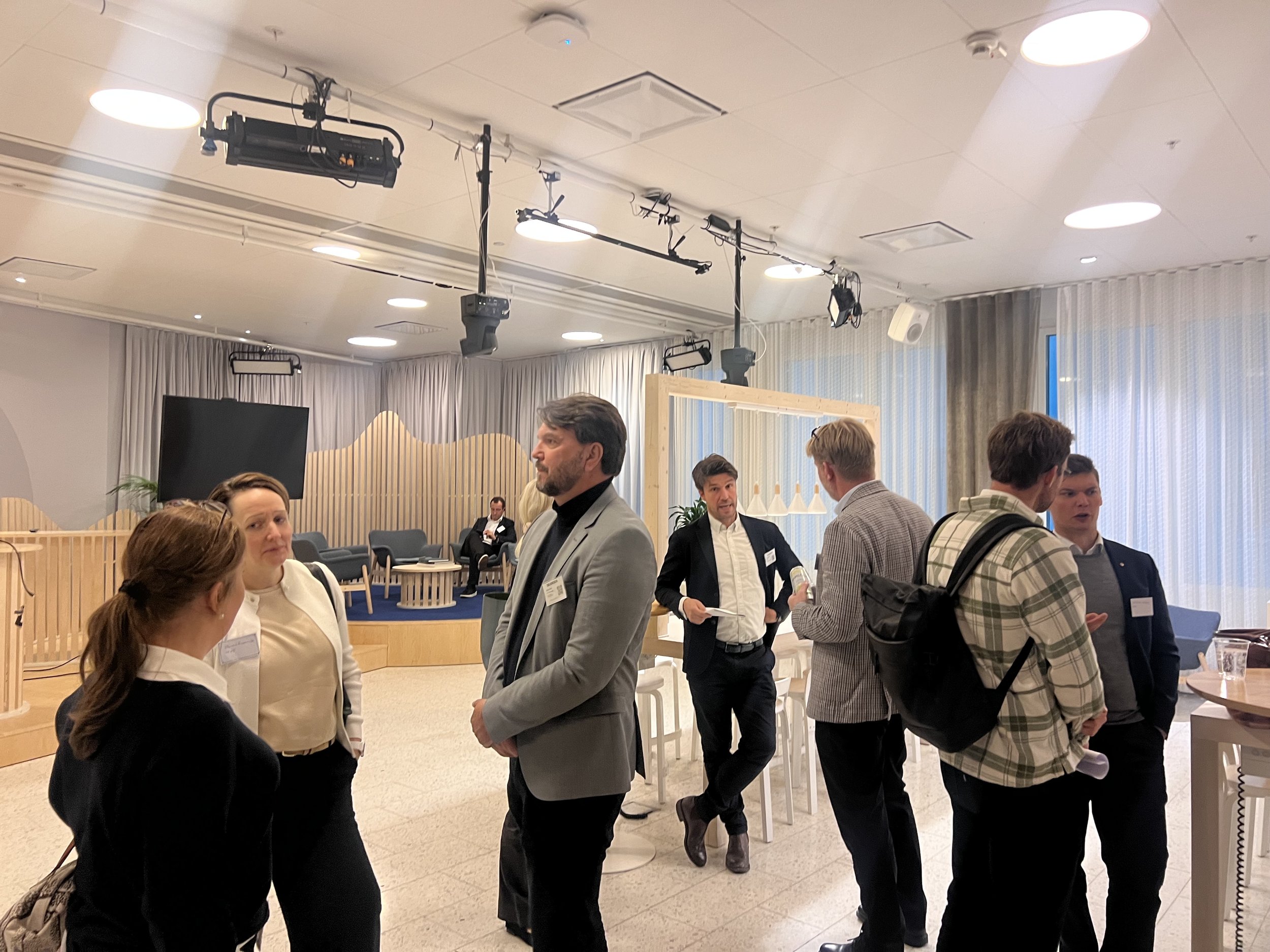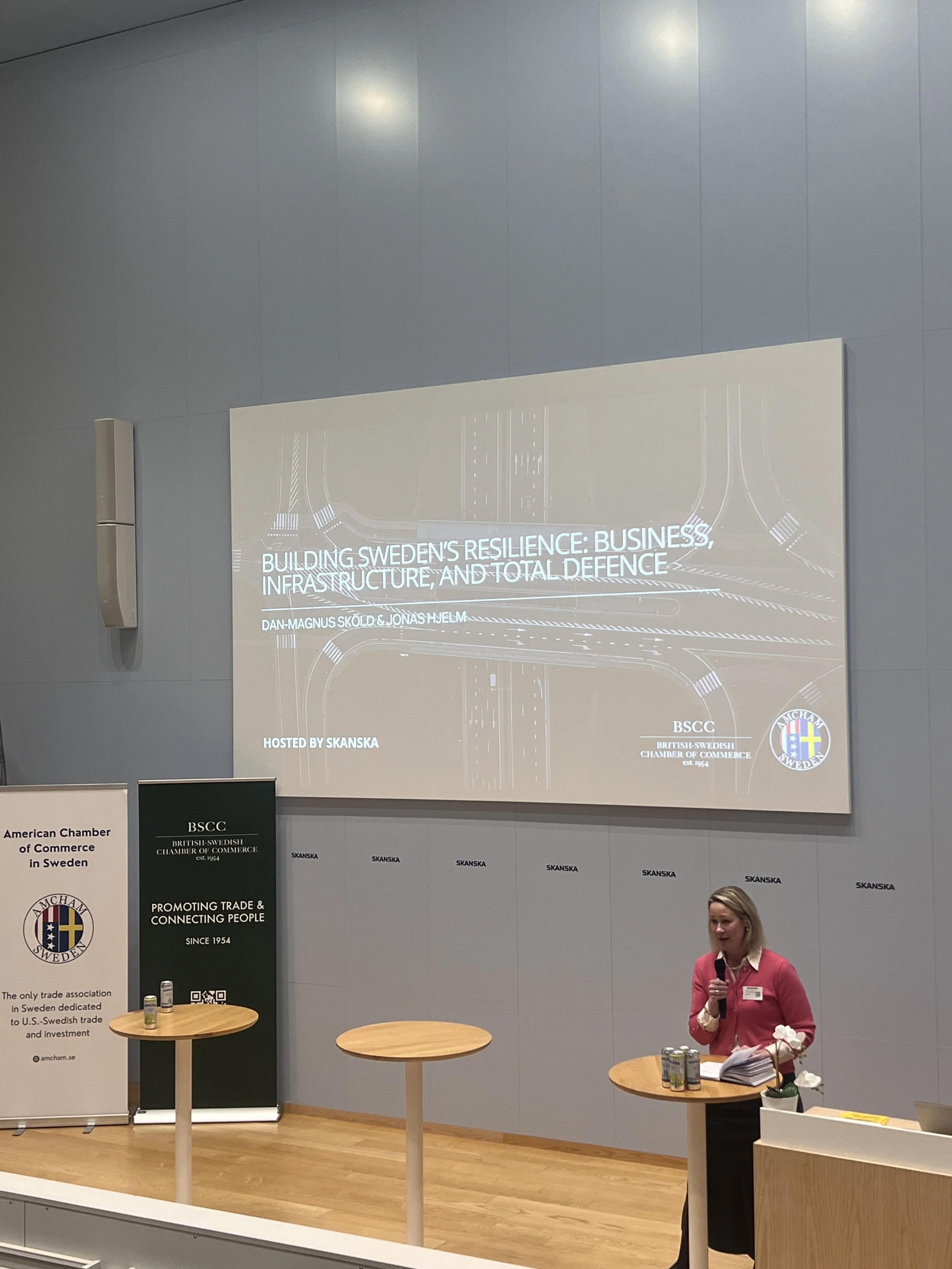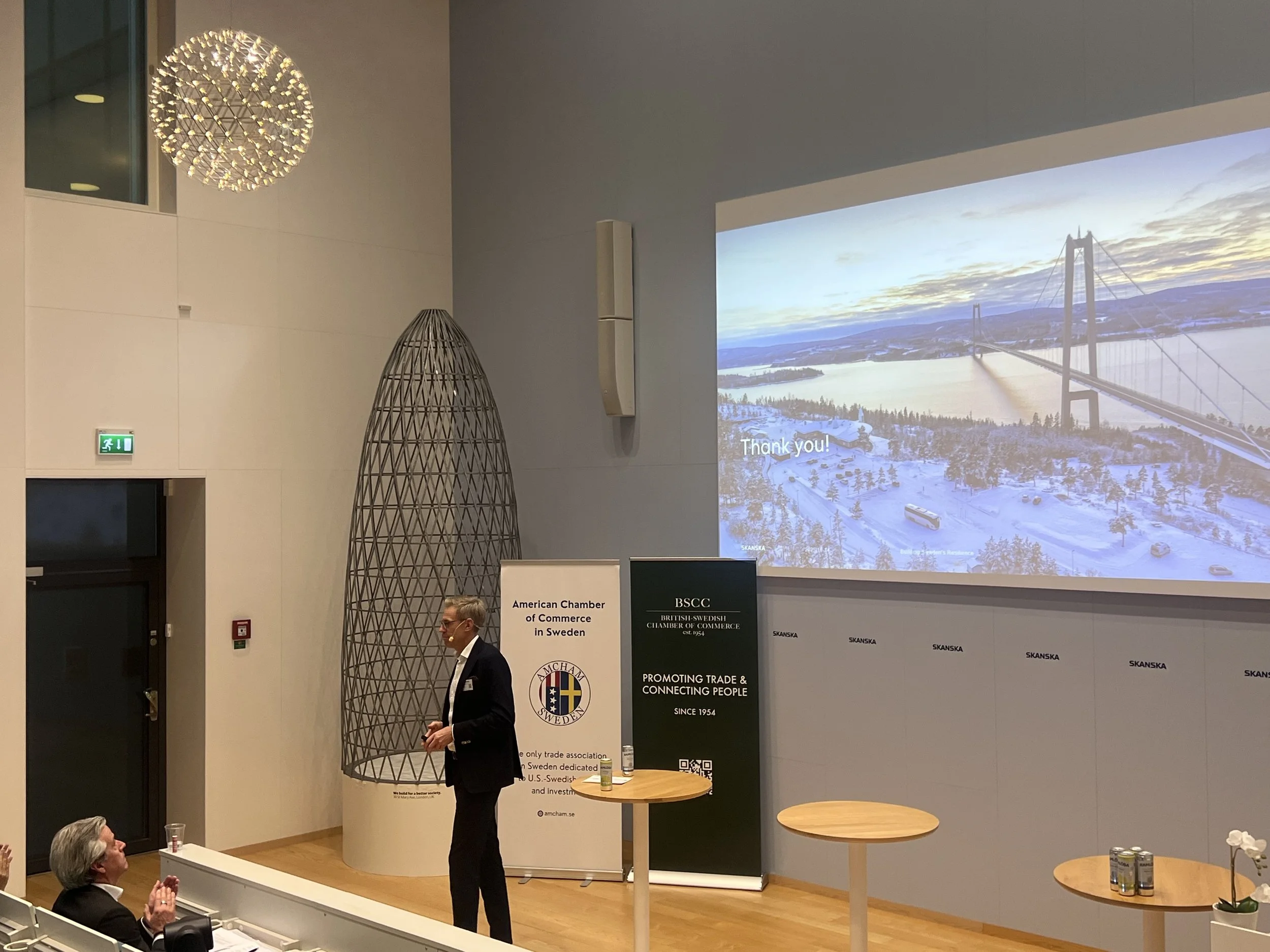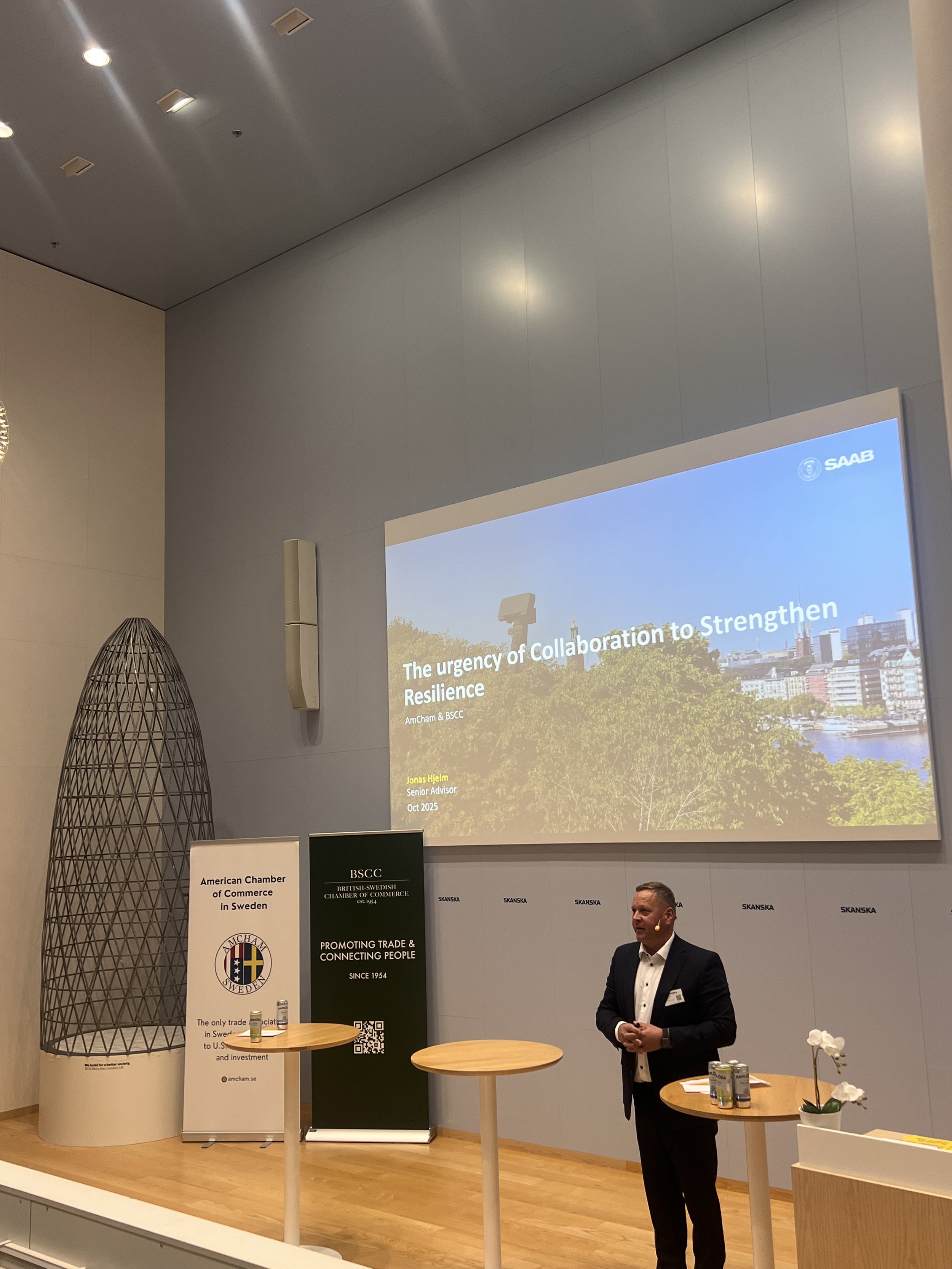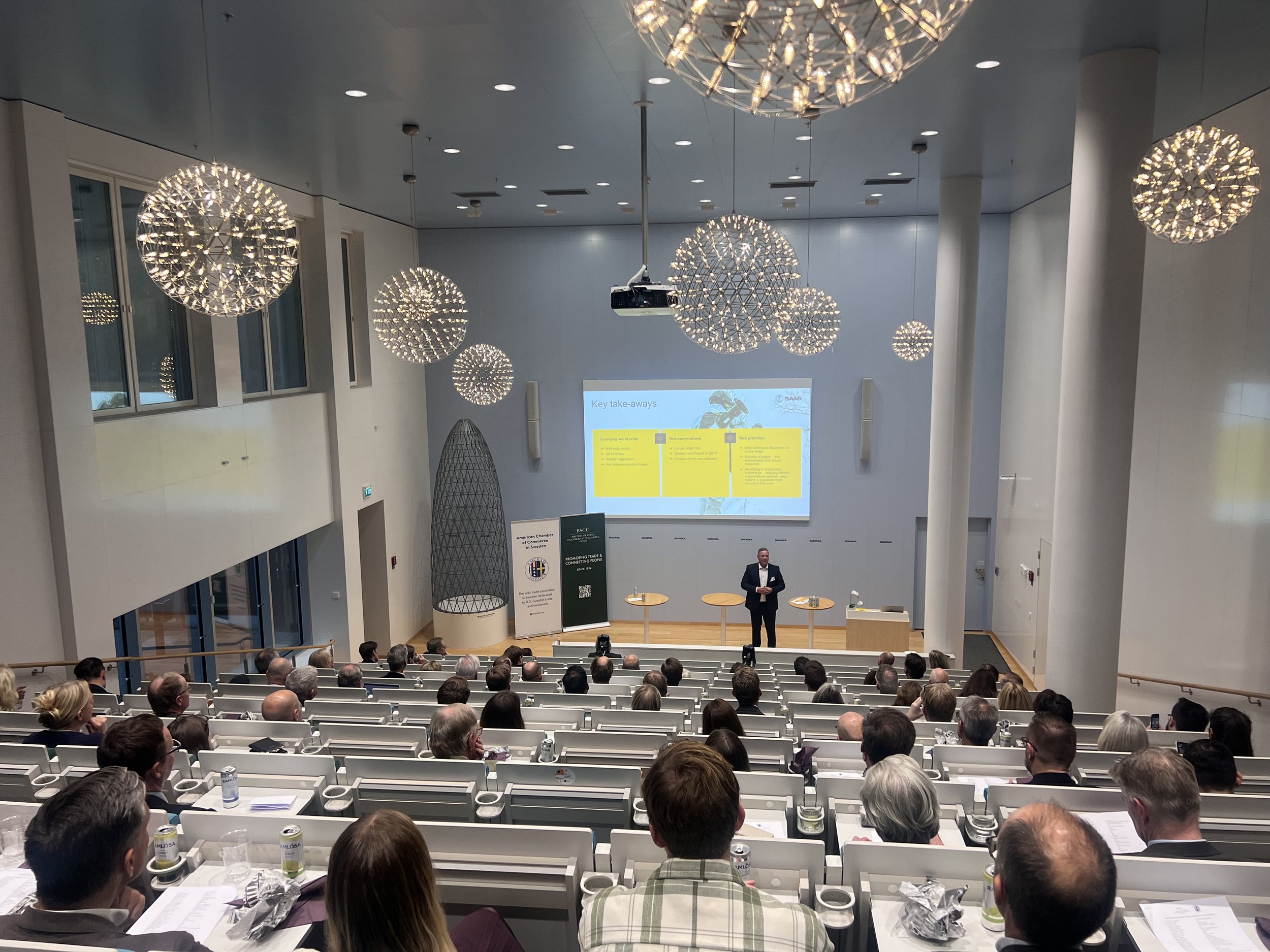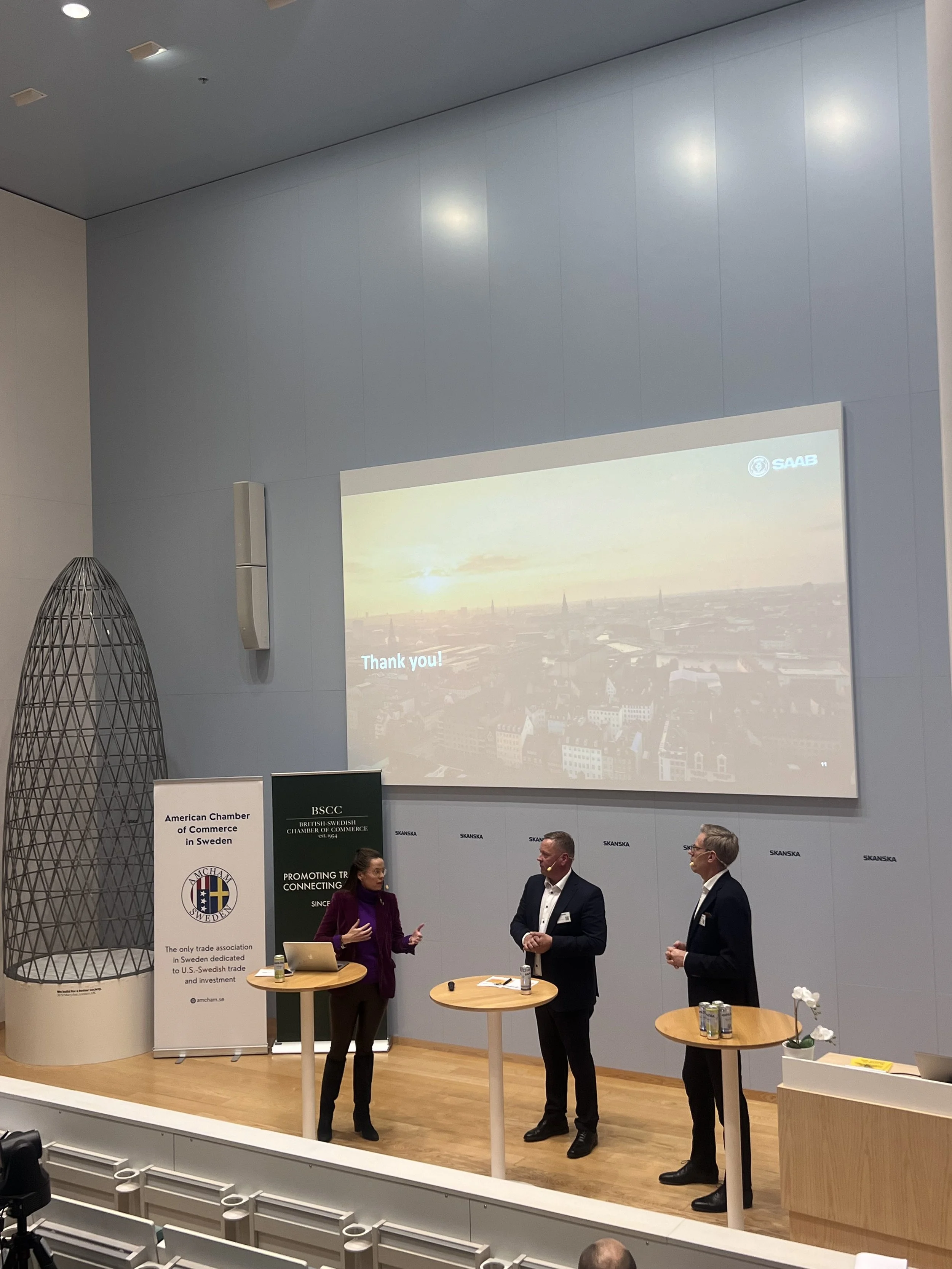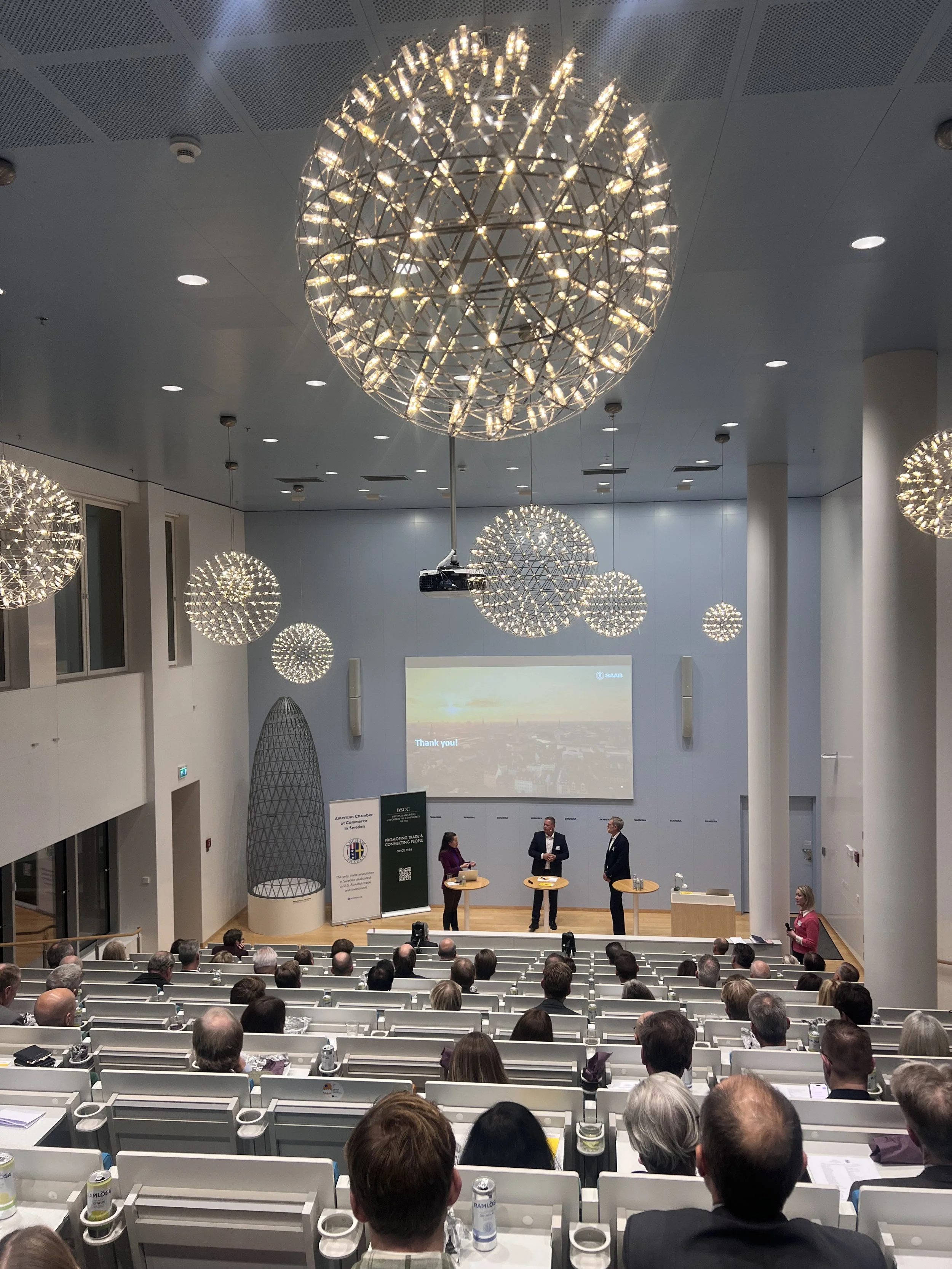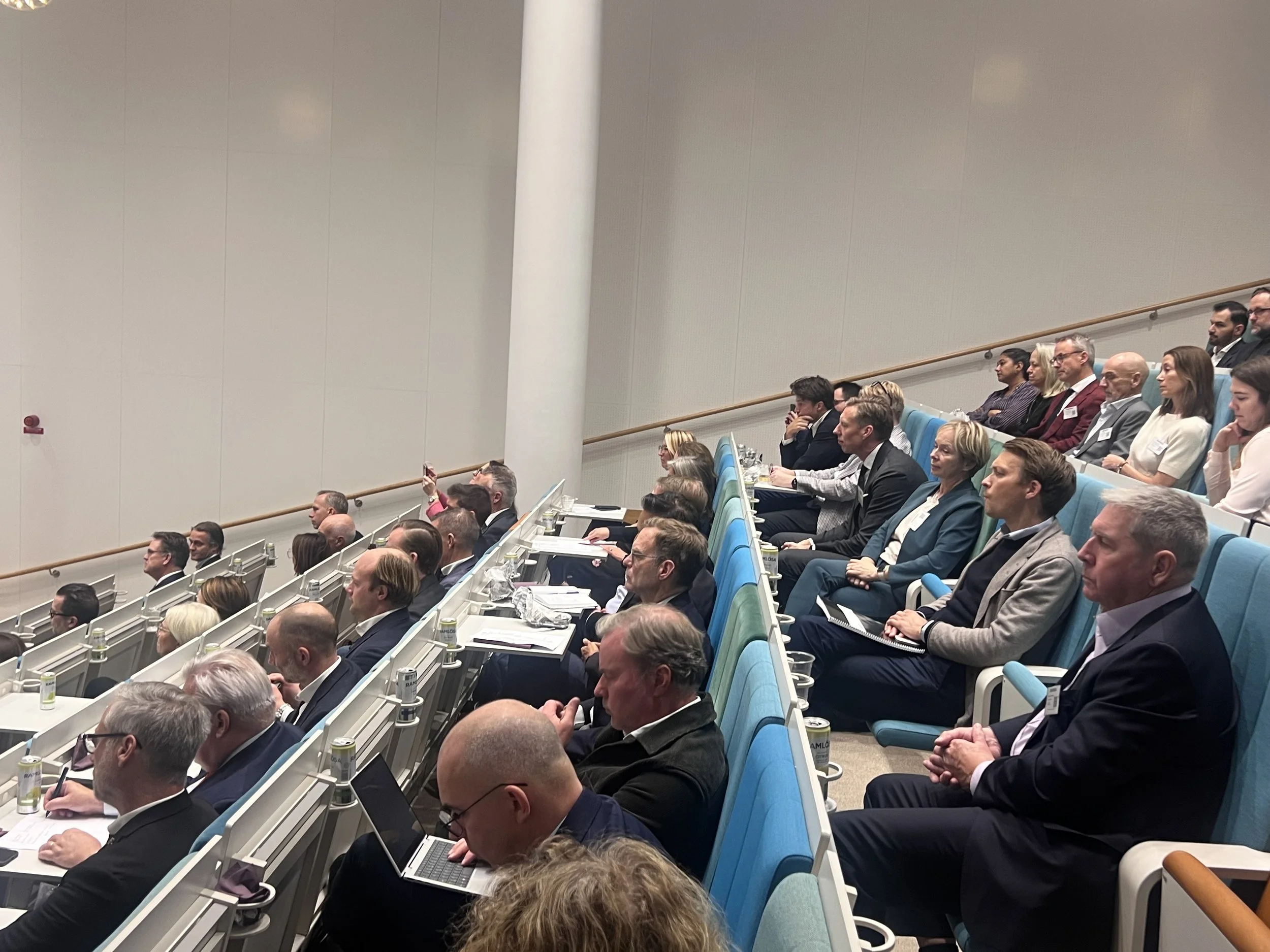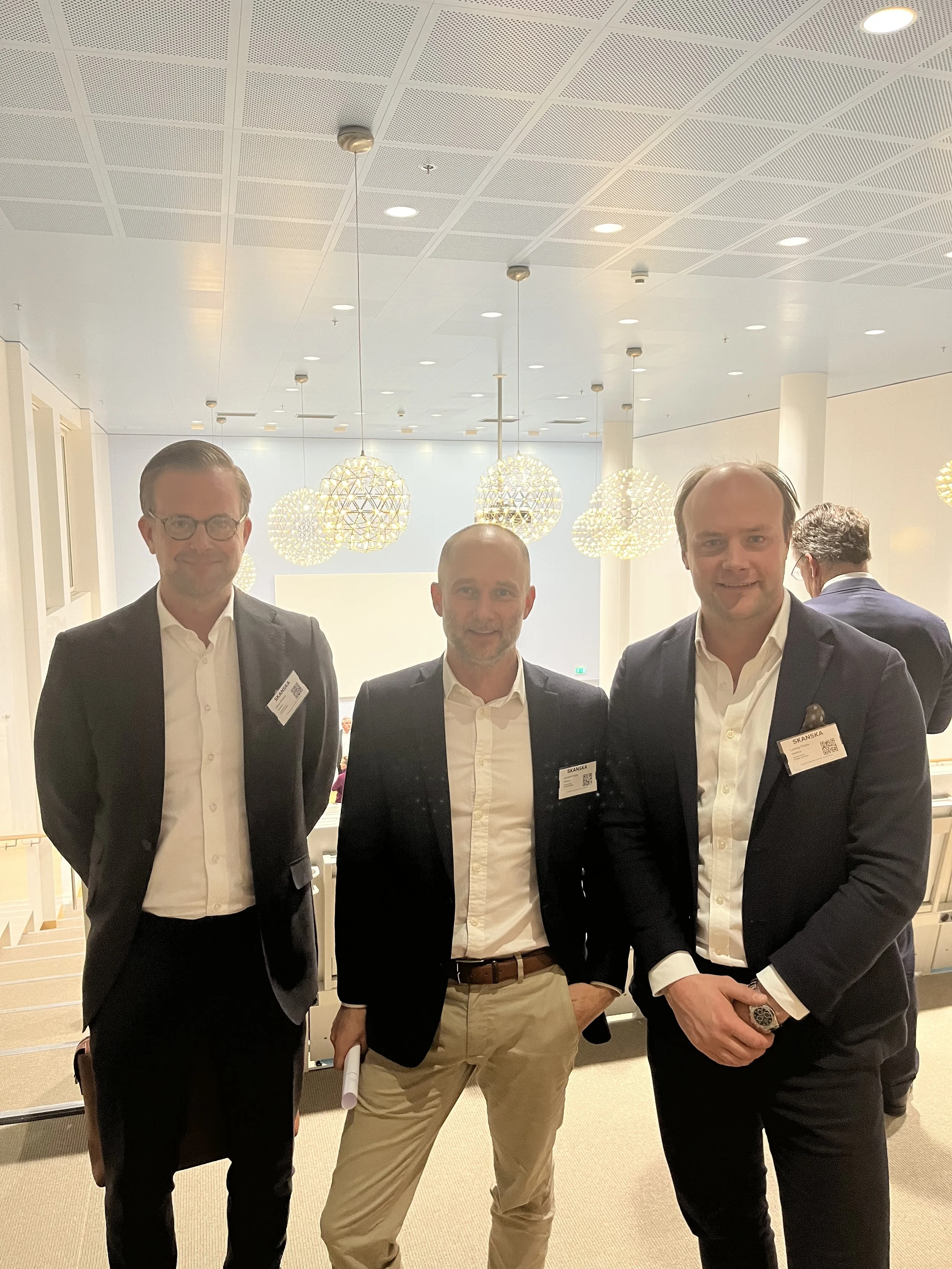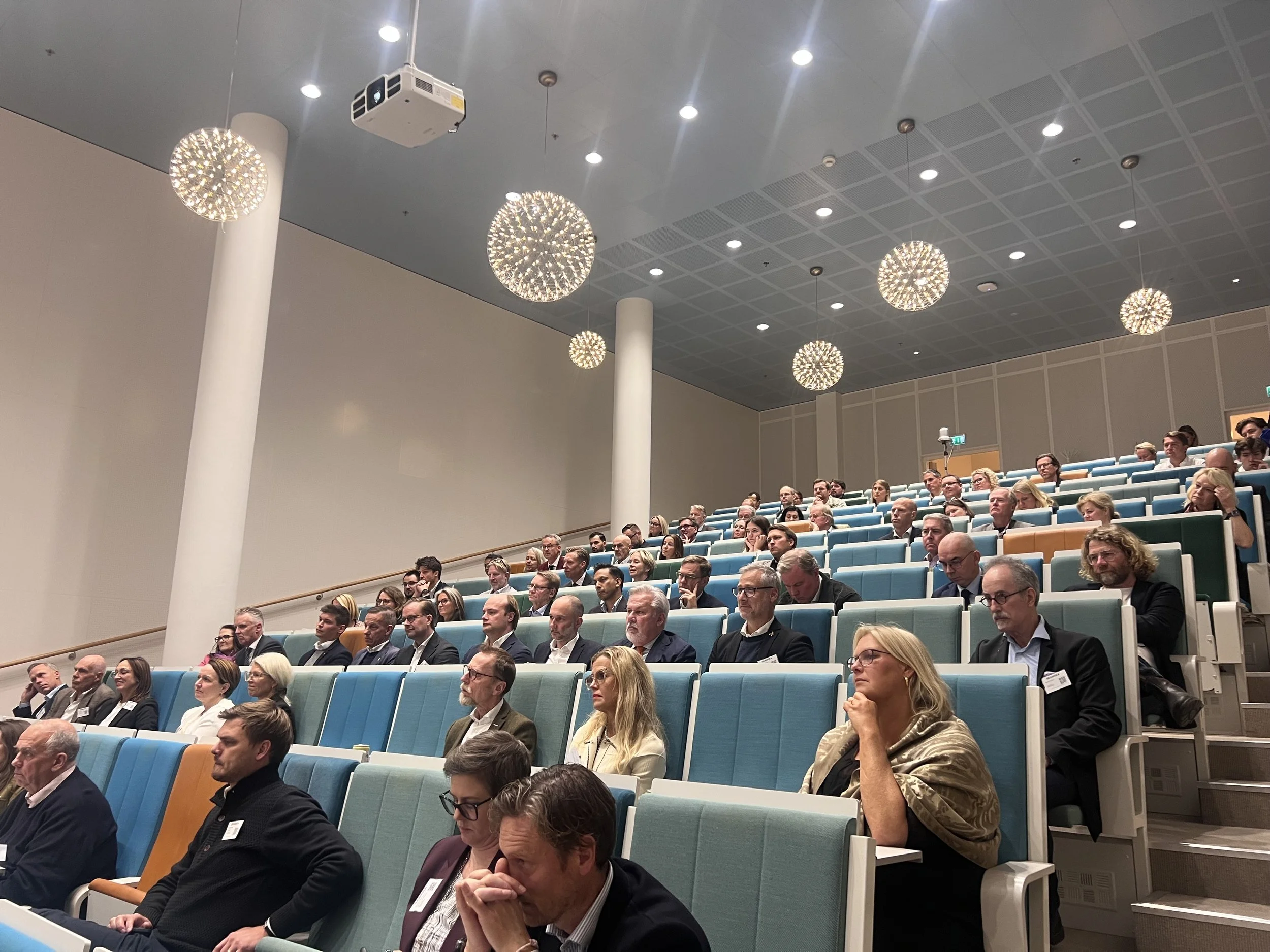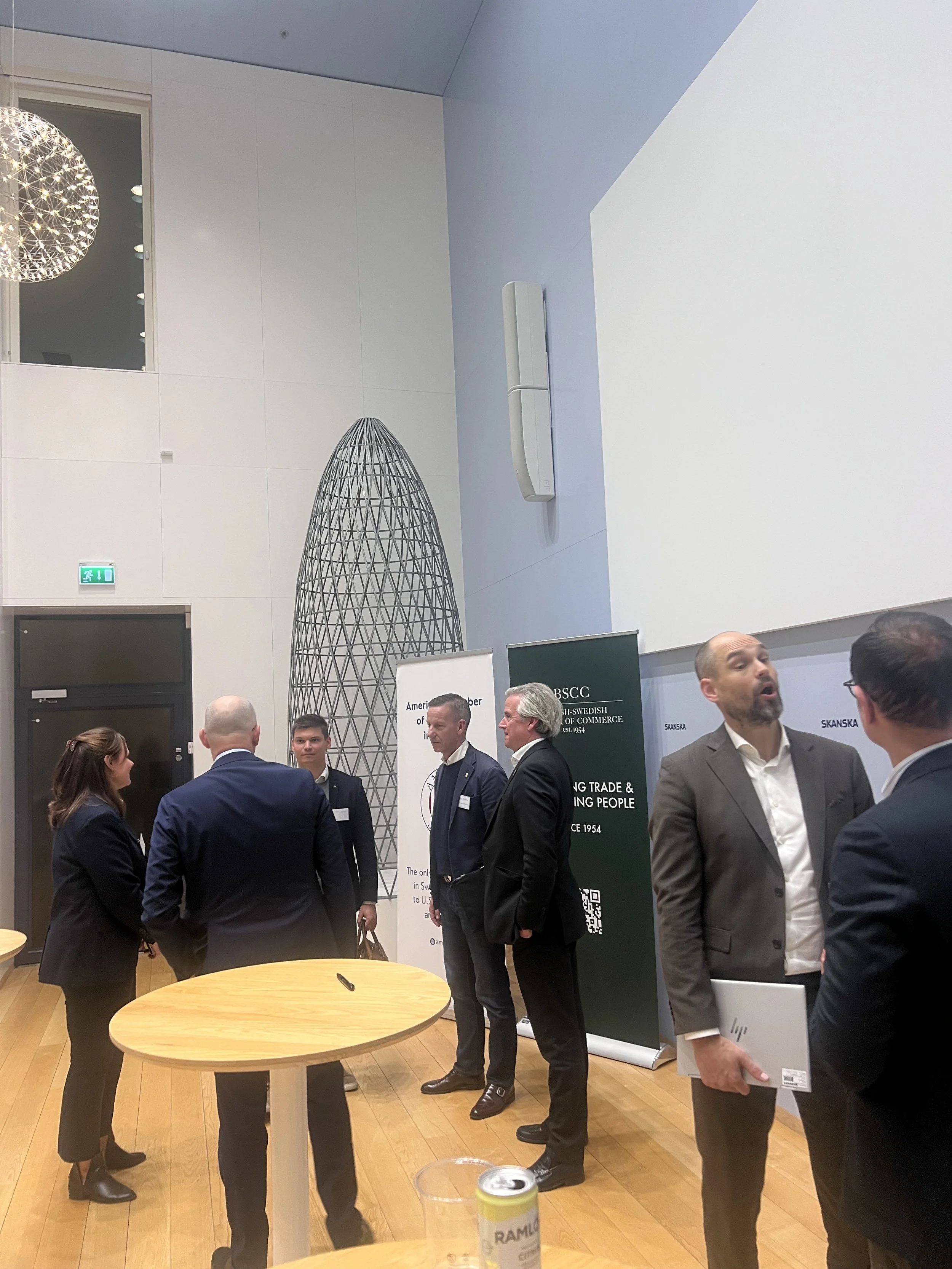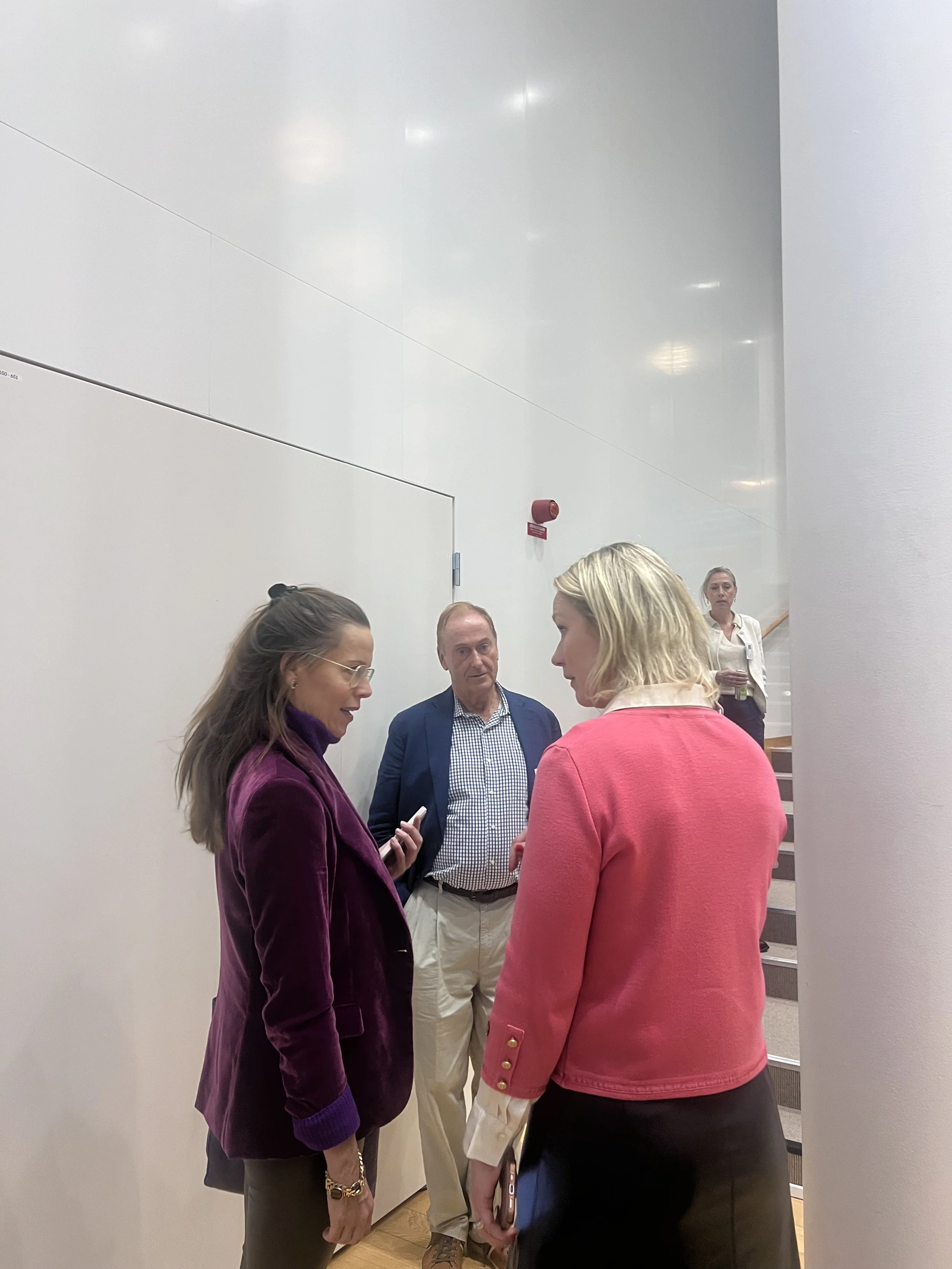Building Sweden’s Resilience: Business, Infrastructure, and Total Defence
On 14 October, we were in collaboration with AmCham Sweden, delighted to welcome our members to an event on Building Sweden’s Resilience: Business, Infrastructure, and Total Defence, generously hosted by Skanska. The evening featured an valuable insights from our speakers Dan-Magnus Sköld, Executive Vice President at Skanska and Jonas Hjelm, Senior Advisor at Saab Group. The discussion, expertly moderated by Aurore Belfrage, explored the intersection of infrastructure, resilience, and collaboration in an era of global uncertainty.
Dan-Magnus Sköld opened the evening by highlighting the importance of viewing infrastructure as a strategic asset for Sweden’s long-term competitiveness and security. He noted that decades of underinvestment have created vulnerabilities that now need to be urgently addressed, particularly as Sweden positions itself as a transit nation within NATO. With public investment increasingly directed towards total defence, climate adaptation, and critical infrastructure, Sköld stressed that upgrading existing systems, catching up on maintenance, and building new projects are essential steps in strengthening resilience. He underlined the importance of purposeful dialogue, bravery to test new models, and a continued focus on sustainability, concluding that investment in infrastructure is an investment in Sweden’s ability to remain secure and competitive.
Jonas Hjelm reflected on the changing global order, noting that we are entering a multi-polar world marked by strategic competition between major powers, renewed Russian aggression, and growing industrial tensions. Against this backdrop, Europe, and Sweden in particular, must take on a larger role through new alliances and purpose-driven collaboration. Helm emphasised that total defence and resilience must be at the centre of national strategy, where security of supply, key technologies, and access to natural resources are vital. He pointed out that while emerging technologies, including AI, bring opportunities, strong fundamentals remain essential: “No matter how much AI we have, concrete is still concrete.” He encouraged openness to innovation while ensuring that core infrastructure remains robust and adaptable to future challenges.
In the fireside chat moderated by Aurore Belfrage, both speakers elaborated on how the private and public sectors must work hand in hand to strengthen Sweden’s readiness. Drawing lessons from Ukraine, they agreed that prioritisation, risk assessment, and adaptability are key to resilience. Drawing from a lively Q&A session, Sköld underscored the need for management-level preparedness and operational exercises, while Hjelm discussed the importance of clear frameworks for corporate responsibility in crises. The discussion touched on digital infrastructure, public procurement, and the growing challenge of disinformation, with both emphasising the need for critical thinking and collaborative problem-solving.
The event concluded with an optimistic outlook, as both speakers called for greater cooperation and shared responsibility. Sköld urged Swedish companies to engage in open dialogue and joint action, while Hjelm stressed that progress depends on trying, failing, and learning together. “Building defence,” he noted, “is not about reviving the past, but creating a sustainable system for the future.” Belfrage closed the discussion highlighting the urgency of collaboration and the clarity of mission: to build a resilient, innovative, and secure Sweden.
We extend our sincere thanks to our insightful speakers, Dan-Magnus Sköld and Jonas Hjelm, to Aurore Belfrage for guiding the discussion, to Skanska for generously hosting a thought-provoking and timely evening, and to AmCham Sweden for a great collaboration.

